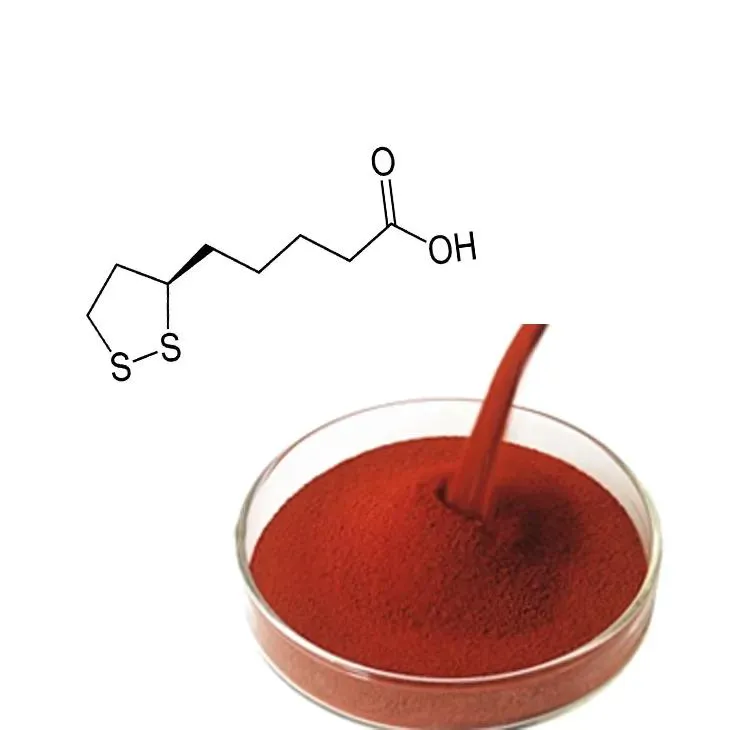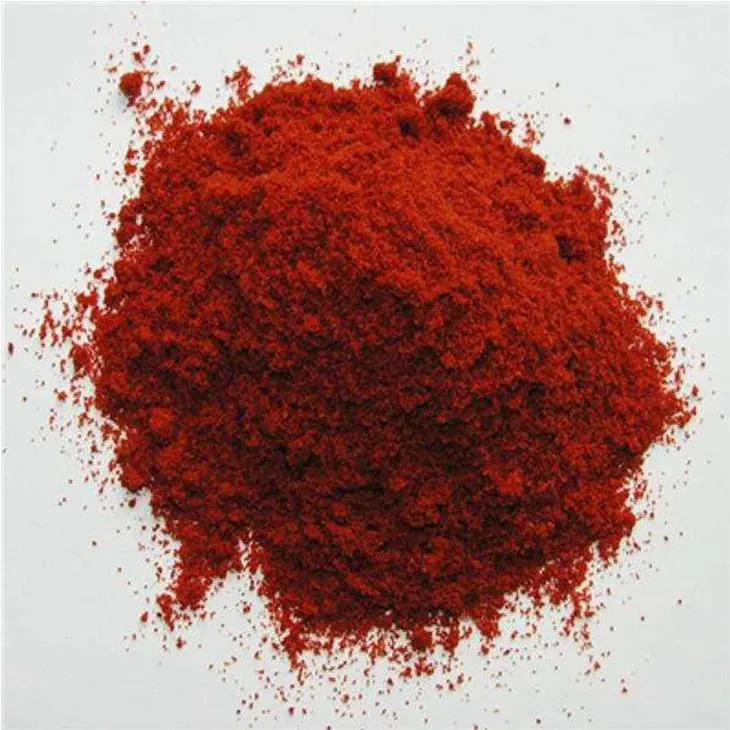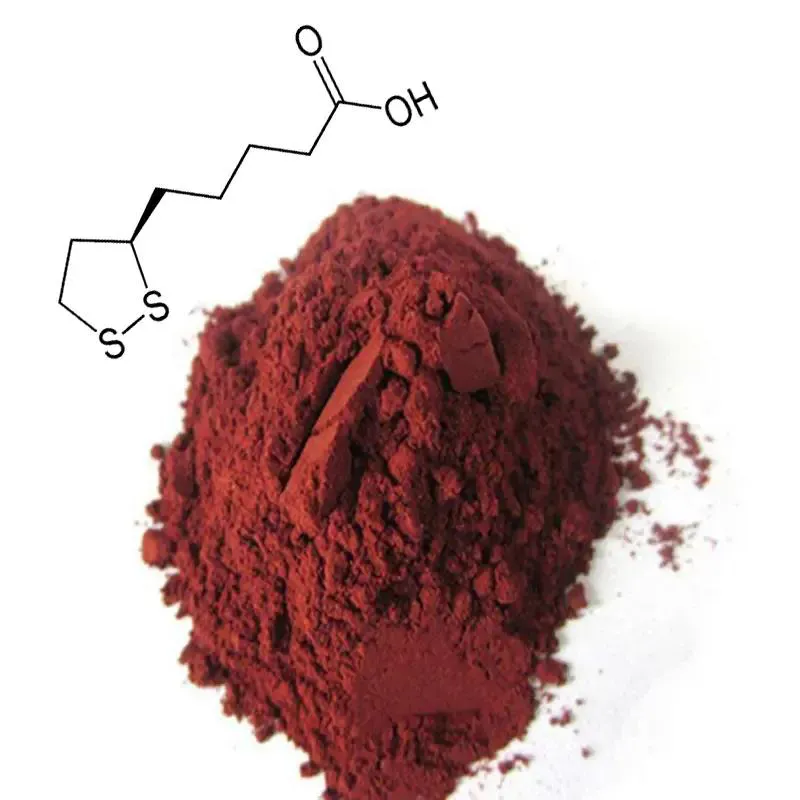- 0086-571-85302990
- sales@greenskybio.com
What Is Natural Astaxanthin? Origins, Benefits, and Applications
2025-03-22

As the health and wellness industry increasingly prioritizes natural and effective supplements, Astaxanthin has emerged as a standout antioxidant. Known for its vibrant red pigment, Astaxanthin is a carotenoid naturally found in certain algae and marine organisms. Revered for its potent antioxidant properties and myriad health benefits, natural Astaxanthin is proving to be an essential addition to modern dietary regimens. In this article, we will explore what natural astaxanthin is, where it comes from, its health benefits, and how it can be incorporated into a comprehensive wellness strategy.
Origins and Sources of Natural Astaxanthin
Astaxanthin is a carotenoid, a type of pigment that provides coloration to many plants and organisms, while also offering powerful protective benefits as an antioxidant. Unlike other carotenoids, astaxanthin cannot be converted into vitamin A, but its unique molecular structure enhances its antioxidant capacity.
The primary natural source of astaxanthin is the microalgae Haematococcus pluvialis, which produces astaxanthin in response to stressors such as high UV light levels or nutrient deprivation. This pigment serves as a defense mechanism, protecting the algae from oxidative damage. Beyond microalgae, astaxanthin is present in marine animals that consume these algae, including salmon, shrimp, krill, and lobster, contributing to their characteristic reddish coloration.
While astaxanthin can be synthesized artificially, natural astaxanthin derived from microalgae is preferred for its superior bioavailability and efficacy.

The Health Benefits of Natural Astaxanthin
Natural astaxanthin is celebrated for its extensive range of health benefits, which include promoting heart health, supporting cognitive function, and enhancing skin health.
1. Potent Antioxidant Properties
Astaxanthin is recognized as one of the most powerful natural antioxidants available. It can neutralize free radicals and reduce oxidative stress more effectively than many other antioxidants, such as vitamin C, vitamin E, and beta-carotene. By protecting cells from damage, astaxanthin helps prevent the onset of various chronic conditions linked to oxidative stress, including heart disease, cancer, and neurodegenerative disorders.
2. Support for Eye Health
Astaxanthin offers specialized protection against eye-related damage caused by oxidative stress. Studies have suggested its ability to improve visual acuity, reduce eye fatigue, and protect the retina from UV-induced damage. This makes it particularly beneficial for individuals exposed to prolonged screen time or high-risk environments for eye strain.
3. Cardiovascular Benefits
Astaxanthin contributes to heart health by improving blood lipid profiles, reducing inflammation, and supporting endothelial function. Research has demonstrated that astaxanthin helps lower LDL cholesterol while increasing HDL cholesterol, contributing to improved overall cardiovascular health. Its anti-inflammatory effects also reduce arterial plaque formation, thereby enhancing blood flow and reducing the risk of cardiovascular events.
4. Cognitive and Neuroprotective Effects
Studies have highlighted astaxanthin's neuroprotective properties, particularly its ability to cross the blood-brain barrier and potentially combat neurodegeneration. By reducing inflammation and oxidative damage in the brain, astaxanthin may improve cognitive function and reduce the risk of disorders like Alzheimer's disease and Parkinson's disease.
5. Skin Health and UV Protection
Astaxanthin is widely utilized in skincare products due to its ability to improve skin elasticity, hydration, and overall appearance. Its antioxidant properties protect skin cells from UV-induced damage, reducing signs of aging such as wrinkles and pigmentation. Coupled with its anti-inflammatory effects, astaxanthin helps maintain a youthful and healthy complexion.
6. Enhanced Exercise Recovery
For athletes and fitness enthusiasts, astaxanthin offers benefits for exercise recovery and performance. It helps reduce muscle damage, improve endurance, and alleviate soreness by mitigating exercise-induced oxidative stress. Incorporating astaxanthin into post-workout routines can lead to faster recovery times and improved overall performance.
7. Immune System Support
Astaxanthin's anti-inflammatory and antioxidant effects extend to immune system modulation, promoting balanced immune responses. By enhancing cellular immunity and supporting overall immune function, astaxanthin may help protect against infections and aid in immune resilience.

How to Incorporate Natural Astaxanthin into Your Diet
Astaxanthin is available in various forms, making it easy to incorporate into a daily wellness routine:
1. Supplements: Capsules or softgels containing natural astaxanthin extracted from microalgae are widely available. These supplements offer concentrated doses and can be conveniently added to a regimen focused on antioxidant support and overall health optimization.
2. Functional Foods: Astaxanthin is sometimes included in functional foods such as fortified beverages and nutritional bars, providing a practical option for those seeking additional antioxidant protection.
3. Skin Care Products: For topical applications, astaxanthin is found in creams and serums to promote skin health and reduce signs of aging.
When selecting an astaxanthin supplement, prioritize products derived from natural sources like Haematococcus pluvialis, and ensure that they include clear dosage recommendations. As with any supplement, it is advisable to consult with a healthcare provider before use, especially for individuals who are pregnant, breastfeeding, or taking medications.

Conclusion
Natural astaxanthin stands out as a powerful and versatile antioxidant with extensive health benefits ranging from cardiovascular and cognitive protection to enhanced immune function and skin health. Derived from microalgae and marine organisms, its natural form offers superior bioavailability and efficacy compared to synthetic alternatives. Incorporating astaxanthin into a balanced diet through supplements and functional foods can significantly enhance wellness outcomes and provide a robust defense against oxidative stress. As scientific research continues to unfold, astaxanthin is likely to maintain its position as a cornerstone of healthy living and preventative nutrition.
- ▶ Hesperidin
- ▶ citrus bioflavonoids
- ▶ plant extract
- ▶ lycopene
- ▶ Diosmin
- ▶ Grape seed extract
- ▶ Sea buckthorn Juice Powder
- ▶ Beetroot powder
- ▶ Hops Extract
- ▶ Artichoke Extract
- ▶ Reishi mushroom extract
- ▶ Astaxanthin
- ▶ Green Tea Extract
- ▶ Curcumin Extract
- ▶ Horse Chestnut Extract
- ▶ Other Problems
- ▶ Boswellia Serrata Extract
- ▶ Resveratrol Extract
- ▶ Marigold Extract
- ▶ Grape Leaf Extract
- ▶ blog3
- ▶ blog4
- ▶ blog5
-
What Is Astaxanthin Supplement
2025-03-22
-
What Is The Function Of Astaxanthin
2025-03-22
-
what is astareal astaxanthin
2025-03-22
-
what does astaxanthin do
2025-03-22
-
what is bioastin hawaiian astaxanthin
2025-03-22
-
What Is Astaxanthin Good For?
2025-03-22
-
American Ginseng Root Extract
2025-03-22
-
Selenium yeast
2025-03-22
-
Saponin Extract
2025-03-22
-
Lily extract
2025-03-22
-
Centella Asiatica Extract
2025-03-22
-
Lavender Extract
2025-03-22
-
Grape Seed Extract
2025-03-22
-
Eyebright Extract
2025-03-22
-
Black Pepper Extract
2025-03-22
-
Sugarcane Extract
2025-03-22






























